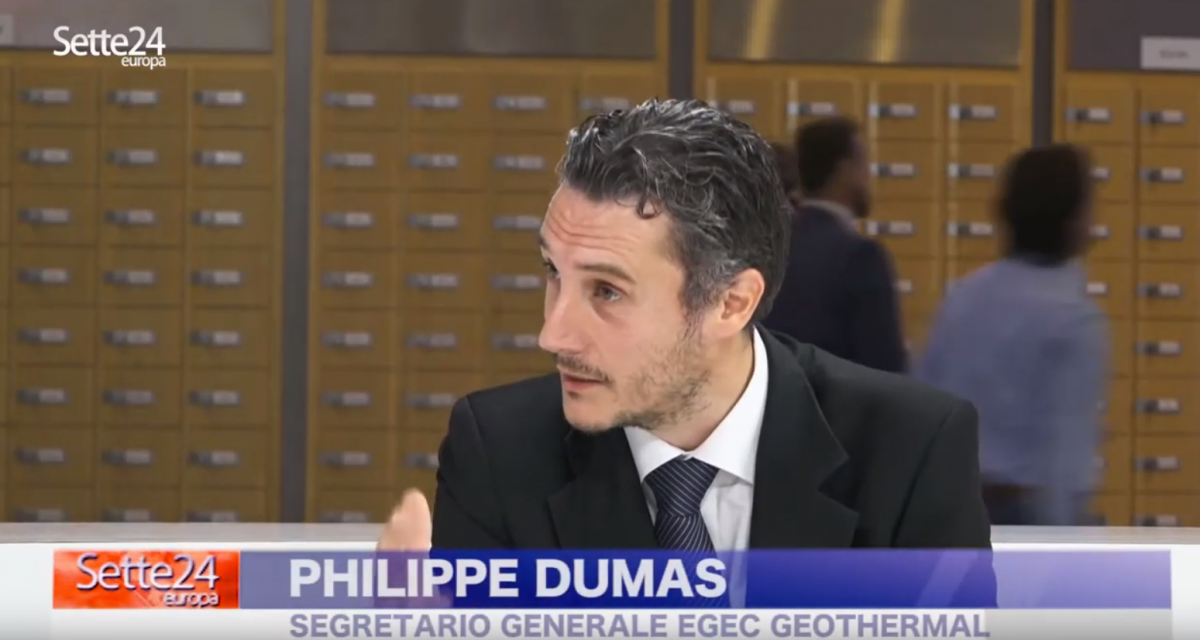The Italian news outlet “Sette24 Europa” recently interviewed EGEC Secretary General Philippe Dumas in the European Parliament on the potential of geothermal energy and the many opportunities offered by this clean source of energy in terms of sustainability, jobs, and societal change.
The interview (in Italian) also touches on the importance of communication, when it comes to energy and to geothermal in particular. “Geothermal energy comes from under the ground, it’s an energy that you do not immediately see,” explains Mr Dumas in his interview. “This makes the dialogue with companies, decision-makers and citizens even more important. It is not just about communicating that this kind of resources exist, but it is also about involving citizens in the choice, to make them part of the energy transition instead of imposing one technology over the other. For the clean energy transition to happen we should change our current model and people are important actors of this change.”
In the case of geothermal, the change can go behind energy itself: geothermal can be used also by industries and local business – in Tuscany, geothermal is used to produce beers and cheese – which means support to local economies and creation of local jobs.
Talking about upcoming challenges, Mr Dumas looks at countries with a long history of use of fossil fuels, such as Hungary and Poland. In these countries, geothermal can support a transition that also guarantees the reconversion of jobs and technical skills from the fossil fuel industry.
Finally, it is also very important to put in place new and innovative financing mechanisms that would put the citizens at the centre of the transition.
The next decade will be Geothermal energy !
*Geothermal energy is already providing heating and / or cooling to European Parliament buildings: Wilfried Mertens, House of EU History, EU creche. A new project in the Paul Herni-Spaak building is under investigation in collaboration with RBINS.
Watch the full interview (in Italian) here


BE SOCIAL & SHARE